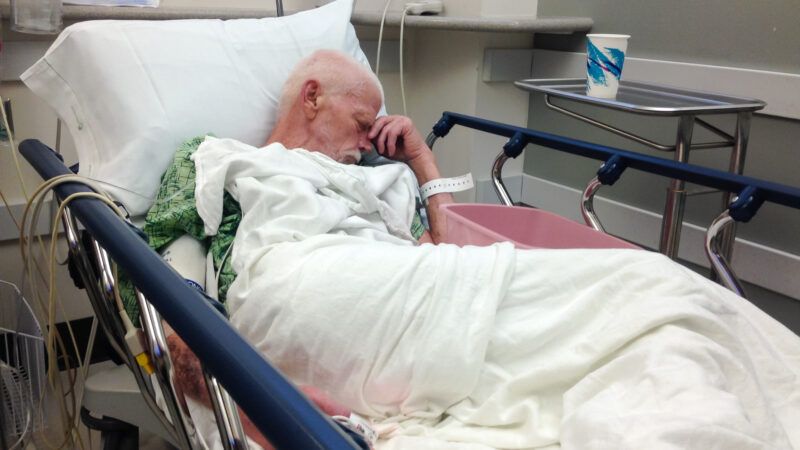In Mississippi, Dozens of Mentally Ill People Are Held in Jails While Awaiting Inpatient Treatment
While a new report highlights Mississippi's jailing of mentally ill people, the practice is common nationwide.

According to a new report, an average of 25 people are sitting in Mississippi jails each day waiting for a bed at a mental health hospital. These individuals have not been charged with any crime. Rather, they are incarcerated as part of a common nationwide practice in which mentally ill individuals, particularly in rural areas, are sent to jail in what is sometimes called a "mental health hold" while authorities wait for a hospital bed to become available. While the practice is explicitly allowed only in five states and banned in Colorado, it is still common in states without specific laws.
The report was conducted as part of increased federal oversight of Mississippi's mental hospitals, following a Justice Department lawsuit against the state. The lawsuit, filed in 2016, alleged that the state had violated the Americans with Disabilities Act and the Civil Rights of Institutionalized Persons Act by "failing to provide adults with mental illness with necessary integrated, community-based mental health services." In 2019, a judge for the District Court for the Southern District of Mississippi ruled against the state and required independent oversight of Mississippi's mental health system. This most recent report is part of a biannual series of inspections to track the state's compliance with judgment in the case.
In the report, one woman interviewed alleged that her husband, who suffers from bipolar disorder, "was held in jail where he was not given his medication and deteriorated further awaiting a State Hospital bed. In a later episode he was taken to crisis center, where staff called police who once again took him to jail." She told monitors that her husband was "subjected to treatment that should not happen in a civilized society."
However, this problem is not confined to Mississippi. A 2017 Marshall Project investigation notes that temporary jailing of the mentally ill occurs nationwide. In a particularly galling case from a South Dakota hospital, "one 16-year-old girl came to the emergency room after overdosing on Motrin and was escorted to jail less than an hour after her arrival, without a psychiatric evaluation. Hospital staff waited until the morning to notify her parents." According to The Marshall Project, reports from the Centers for Medicare and Medicaid Services indicate that from 2011 to 2017, at least 22 hospitals in 16 states were cited by the agency for sending mentally ill patients into law enforcement custody without first attempting to stabilize them.
The continued practice of sending someone to jail, rather than giving them urgently needed mental health care reflects the callousness with which the mentally ill are treated by law enforcement and hospitals alike. Not only does the unnecessary incarceration of the mentally ill indicate that many more beds are needed at inpatient psychiatric facilities, but it also shows what can happen when law enforcement is utilized as solutions to noncriminal problems and jail is treated as a holding pen for some of society's most vulnerable individuals.


Show Comments (64)